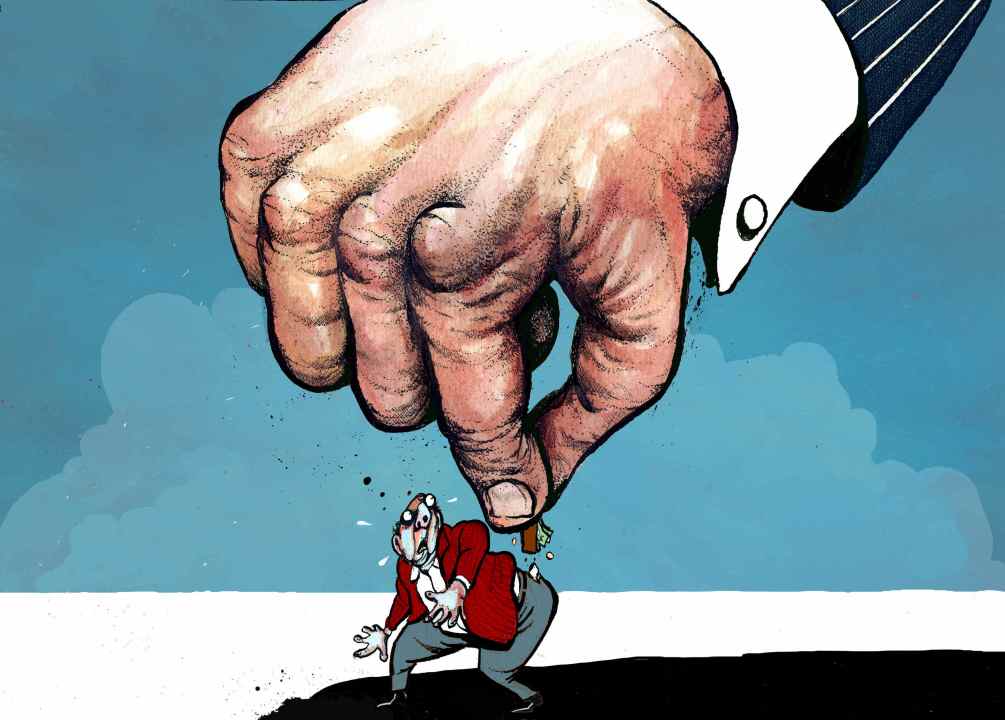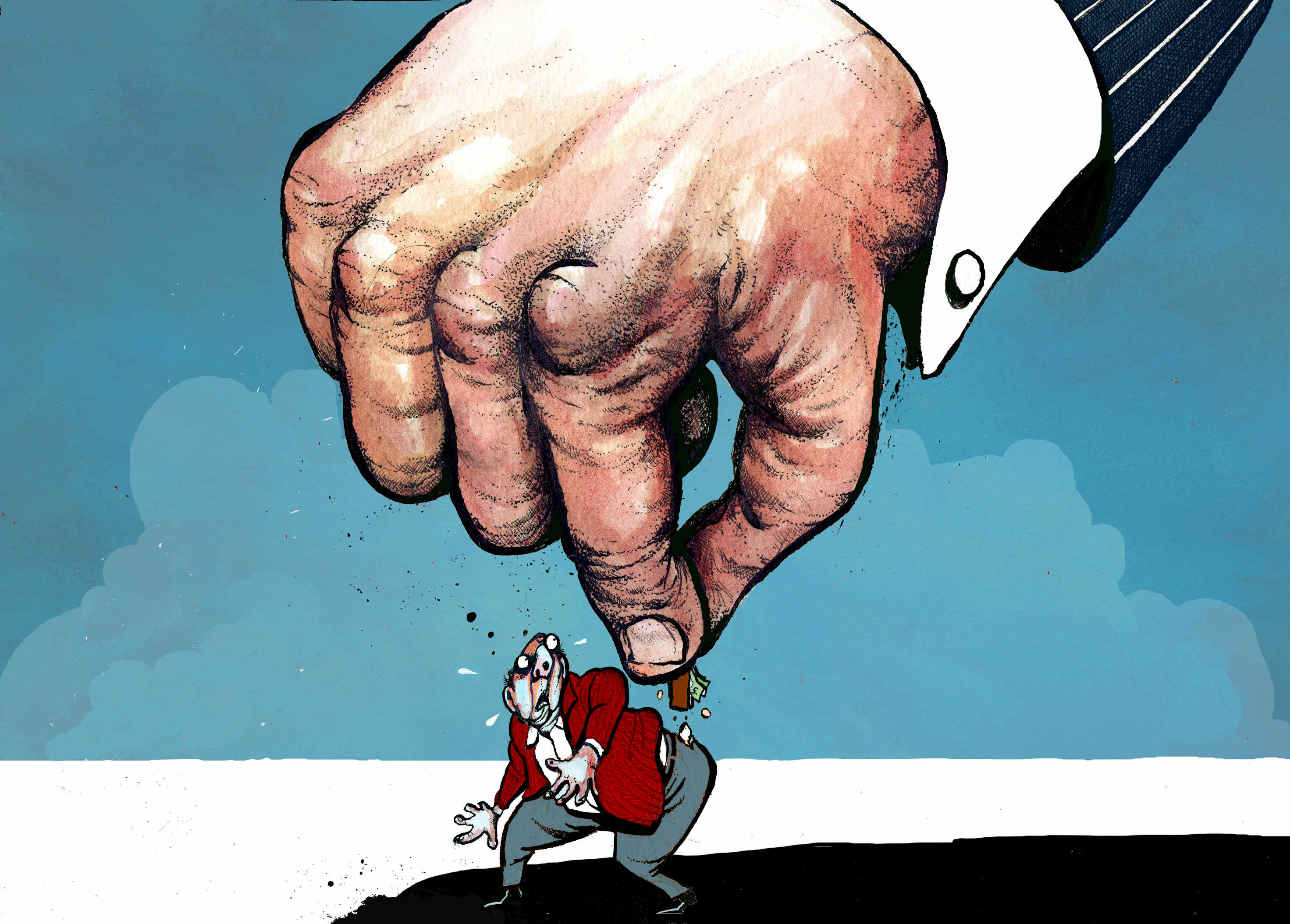Imagine what the government could do with an extra £9.1 billion a month. It could build HS2 in its entirety within the space of a year. Or better still, it could double the defence budget and still have some money left over to build the 40 new hospitals which the Conservatives promised – as well as a few schools, too.
That sum – £9.1 billion – is what the government paid in debt interest in October alone, according to the figures on public finances released by the Office for National Statistics this morning. Overall, it was forced to borrow £17.4 billion over the course of the month – only just shy of the £18.2 billion in had to borrow in October 2020, in the depths of the pandemic. That, we were led to believe, was a one-off, once-in-a-century expansion of the state required to head-off a crisis. Yet borrowing on this scale is becoming normal.
Labour’s fat pay rises for public sector workers are part of the problem, off course. The government handed out this money without any requirement to improve productivity, which lamentably has fallen back to levels lower than when Tony Blair came to power in 1997. This in spite of quarter of a century of rapid advancement in technology which should have presented easy pickings when it comes to boosting productivity. But it is not just that present government which has landed the public finances in the dire state they are. No government of either colour has succeeded in balancing the books in 22 years. They have carried on borrowing in good times as in bad. And all the while the political conversation revolved around so-called ‘austerity’. Actually, the opposite was occurring – we have had governments behaving like Viv Nicholson, the Yorkshire housewife whose husband Keith won the modern-day equivalent of £4 million on the football pools and announced she was going to ‘spend, spend, spend!’ – and bankrupting herself within five years (Keith wrote himself out of the tragedy by crashing his new Jaguar).
Borrowing on this scale is becoming normal
Public spending in Britain over the past two decades has been driven by an extreme Keynesian orthodoxy which claims cutting public expenditure is counter-productive because it shrinks the economy and thereby leads to lower tax revenue in a spiral of decline. But where is the economic growth which was supposed to have resulted from keeping public spending high? There was a fatal flaw to this orthodoxy: it asserted that only public spending can stimulate the economy. Yet what we have done over the past 20 years is shovel money into an unproductive public sector while high taxes starve the private sector of money to spend and invest.
Westminster has spent the week trawling through Rachel Reeves’s CV to work out whether she really has the experience as an economist which she claims to have. Whatever her qualifications, of one thing I am certain: our next Chancellor of the Exchequer will have to have the attitude of Javier Milei, the Argentine President who attended his political rallies carrying a chainsaw as a prop – to signify what he intended to do to public spending. It is the only way we are going to save ourselves from the mire of debt that this country has descended into.









Comments